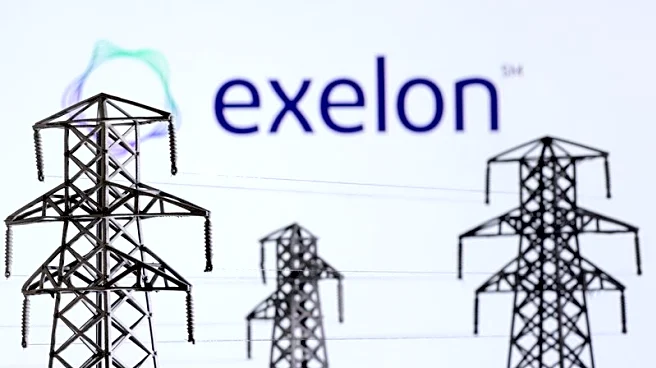What's Happening?
Arup, an environmental consultancy, has been appointed to lead the environmental impact assessment (EIA) for the Peak Cluster carbon capture project in the UK. This project aims to address the significant CO2 emissions from cement and lime production plants in Derbyshire and Staffordshire, which produce 40% of the UK's cement and lime but emit over 3 million tonnes of CO2 annually. The project involves developing carbon capture facilities at plants operated by Tarmac, Buxton Lime, Breedon, and Holcim. The captured CO2 will be transported via a proposed underground pipeline to Spirit Energy's Morecambe Net Zero geological storage site for permanent storage. Arup, supported by AECOM and Quod, will oversee the delivery of the EIA and development consent order (DCO), ensuring the project's environmental effects are thoroughly assessed.
Why It's Important?
The Peak Cluster project represents a significant step towards reducing carbon emissions in the UK cement and lime industry, which is crucial for meeting national and international climate targets. By capturing and storing CO2 emissions, the project aims to secure a sustainable future for the industry, preserving jobs and promoting low-carbon products. This initiative is supported by the UK National Wealth Fund and is expected to attract private investment, enhance the UK's supply chain and skills base, and position the country as a leader in the global low-carbon technology sector. The project's success could serve as a blueprint for similar developments across Europe and beyond, contributing to global efforts to combat climate change.
What's Next?
The next steps for the Peak Cluster project include completing the environmental impact assessment and obtaining the necessary development consent order. This will involve detailed evaluations of the environmental effects during construction and operation, as well as interfacing with Spirit Energy's offshore infrastructure for CO2 storage. Stakeholders, including government bodies, industry leaders, and environmental groups, are likely to monitor the project's progress closely. Successful implementation could lead to further investments in carbon capture technology and infrastructure, potentially influencing policy decisions and encouraging similar projects worldwide.
Beyond the Headlines
The Peak Cluster project highlights the growing importance of carbon capture and storage (CCS) technologies in achieving climate goals. It underscores the need for collaboration between industry, government, and environmental organizations to develop sustainable solutions. The project's focus on preserving jobs and promoting low-carbon products reflects broader economic and social considerations, emphasizing the role of CCS in driving economic growth while reducing environmental impact. As CCS technology advances, ethical considerations regarding its implementation and potential impacts on local communities and ecosystems will need to be addressed.










